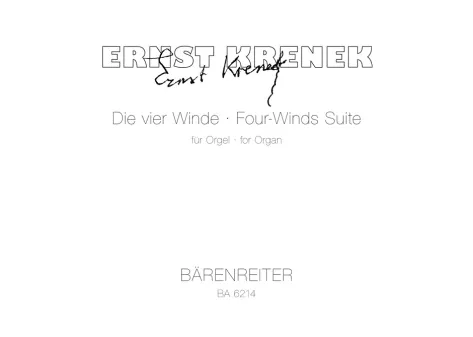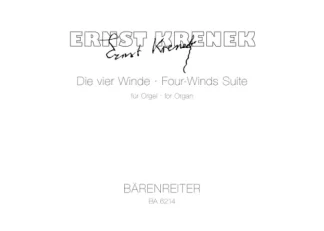Description
Krenek Four Winds Suite Op.223 (Organ)
“One need have no hesitation about designating my writing of the past ten years as dodecaphonic, since the twelve tones are always in close proximity. It is atonal, since it rejects tonal centers. I only occasionally employ the stricter disciplines of the dodecaphonic and serial techniques, since I am more interested in a suppler writing style. I have nothing to do with new tendencies like ‘New Simplicity’, ‘Neoromanticism’, ‘Minimalism’, and so forth.” (Ernst Krenek, 1989)
Even during his lifetime, Ernst Krenek, who left behind an oeuvre of more than 240 works when he died at the age of 91, held quite an extreme position in music history. Because of his great versatility, critics in Europe often spoke of him as constantly changing his “style of composing,” tacitly implying that a creative life must be stylistically uniform. In the United States, however, he was deemed the “one-man history of twentieth-century music,” a unique and nearly unbelievable fact Krenek lived up to through his creation of work that spans more than seven decades of the twentieth century, from the end of the 1910s until the end of the 1980s. When taken seriously, this bon mot does not refer to the temporal concordance of his works or his participation in the latest developments in music throughout his life; it rather points to his role as a twentieth-century contemporary.

